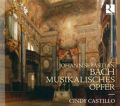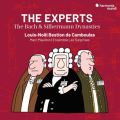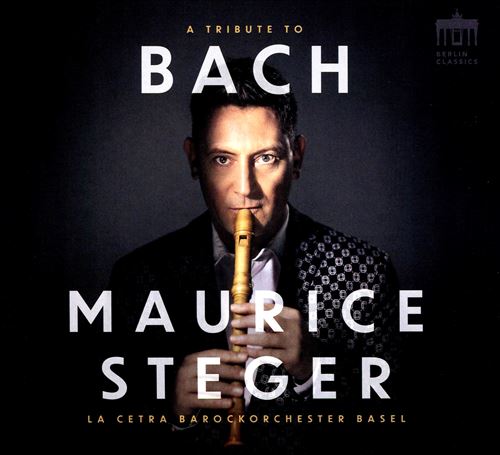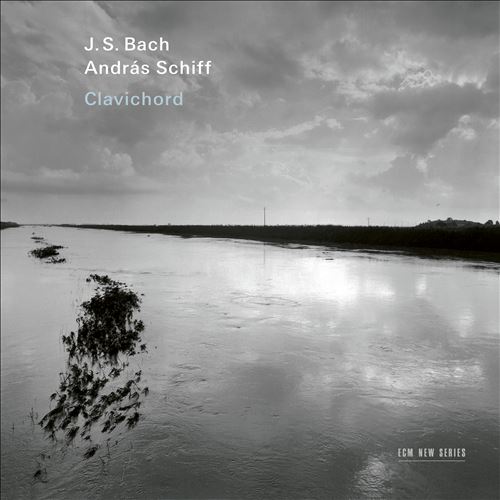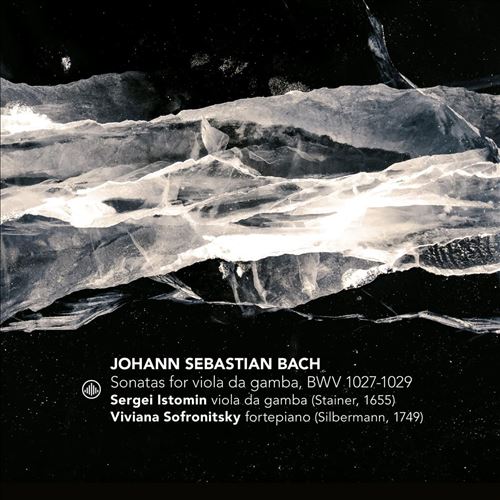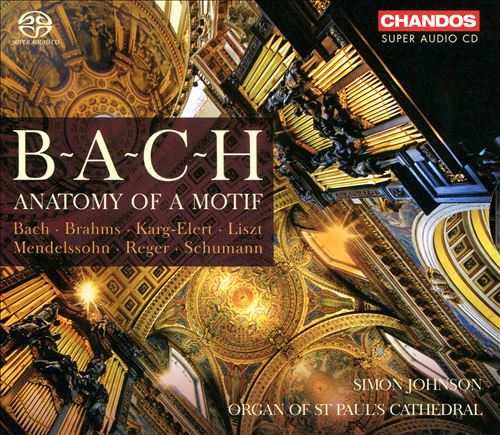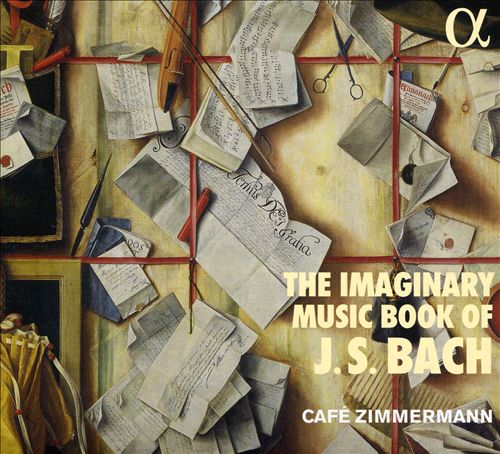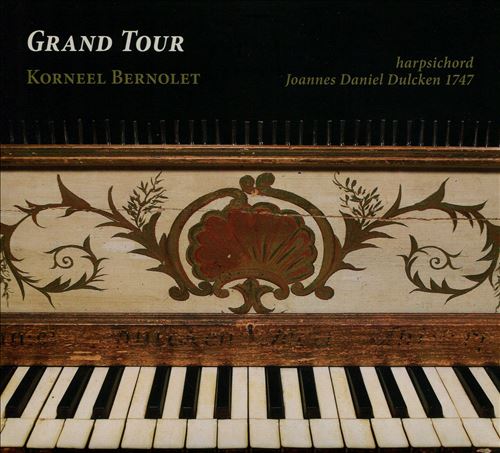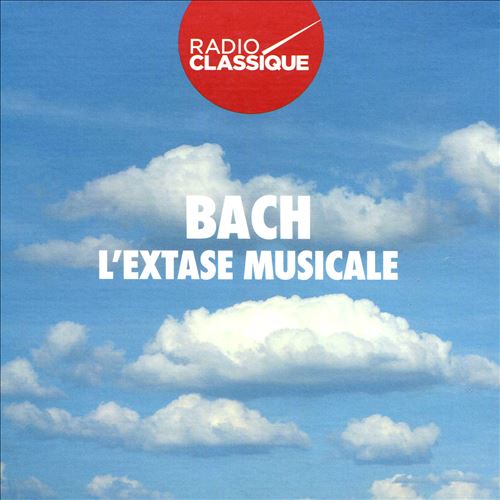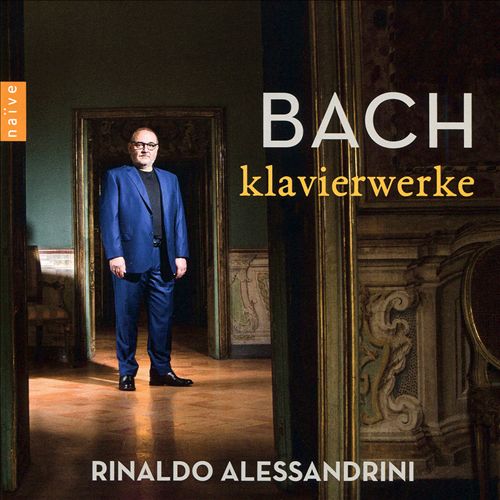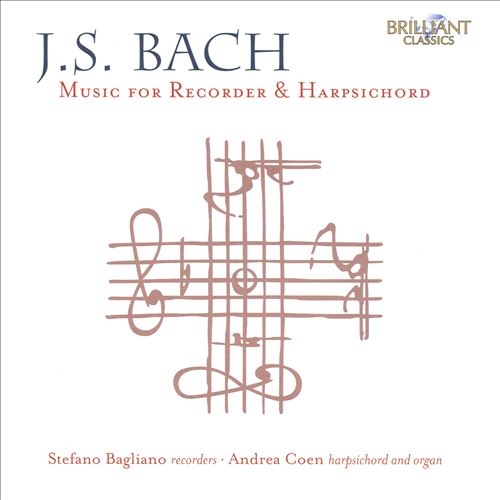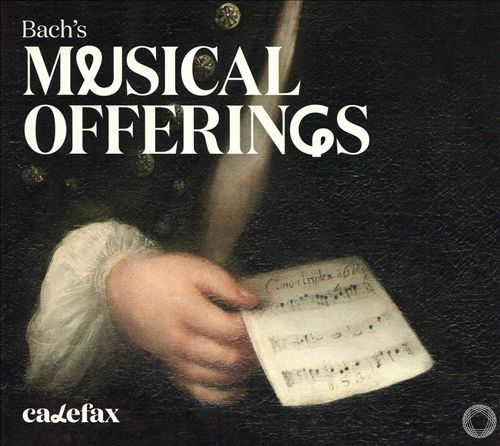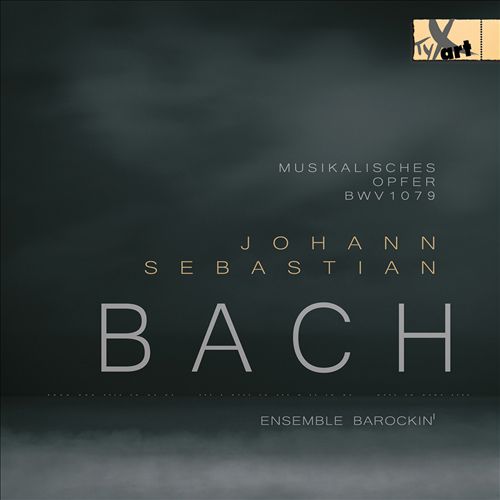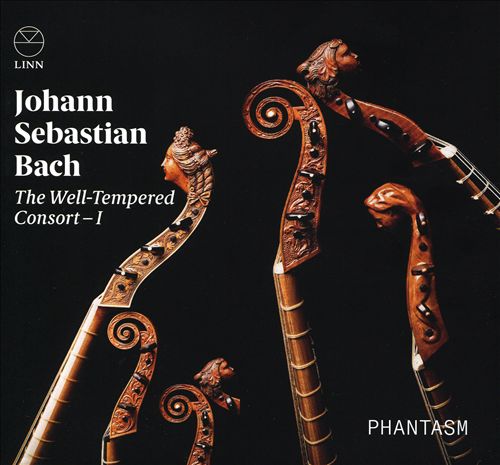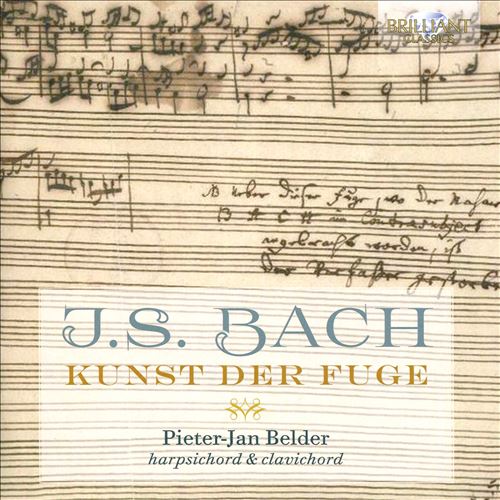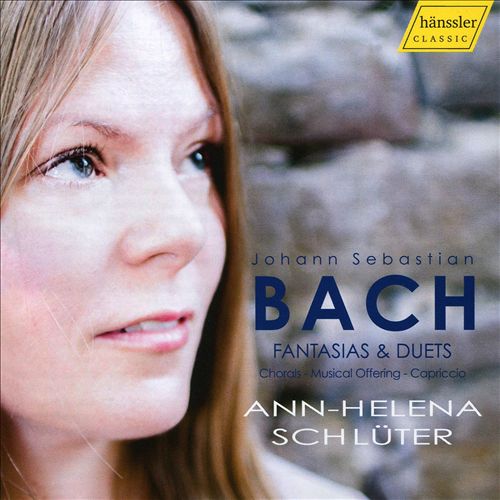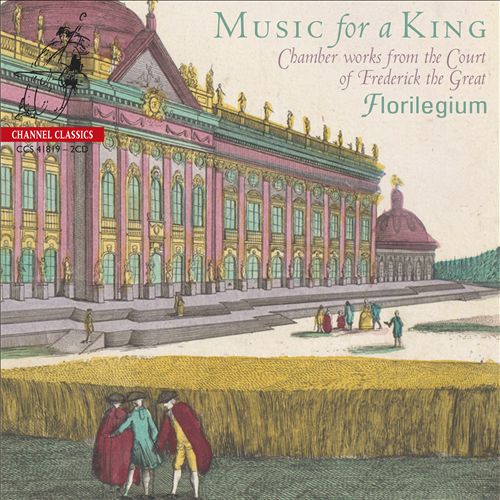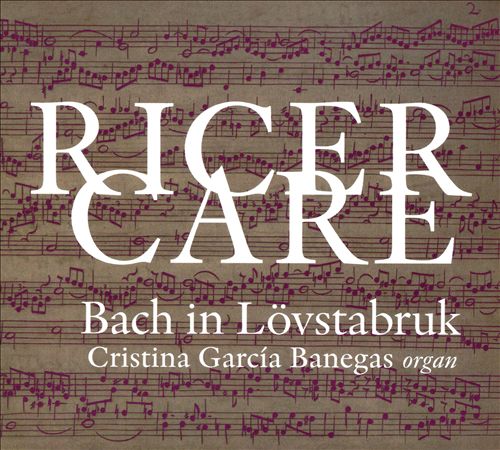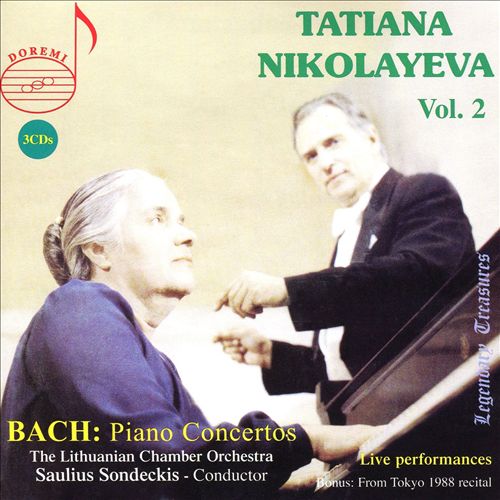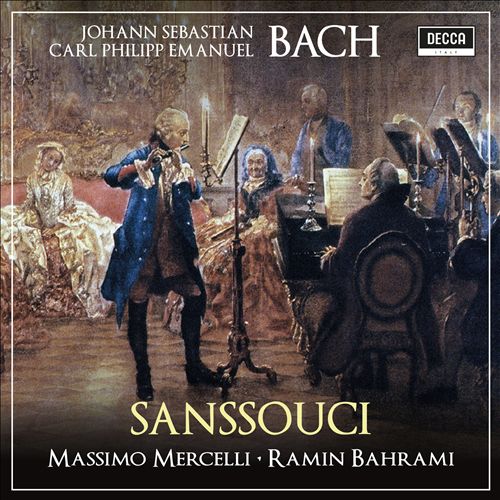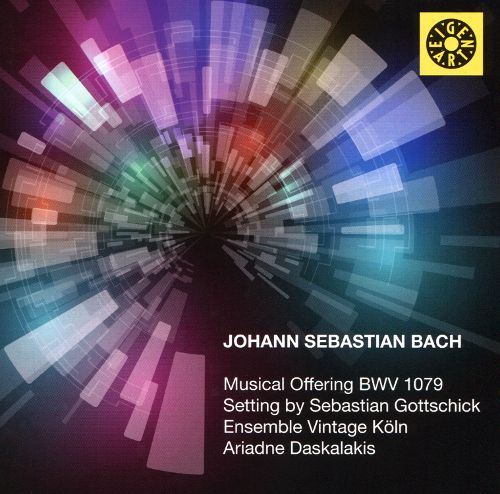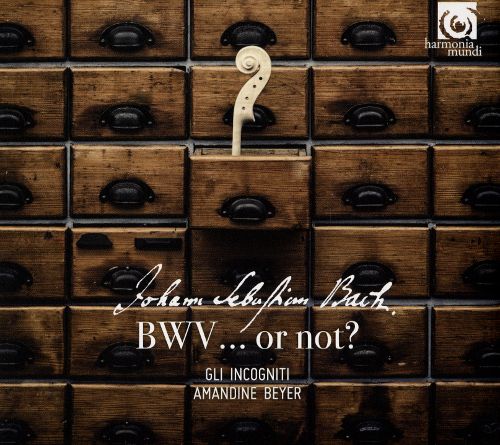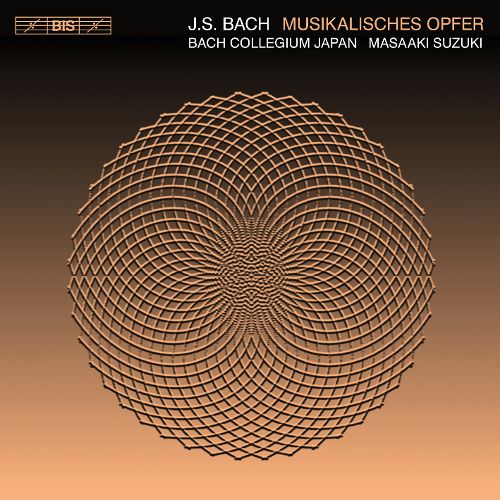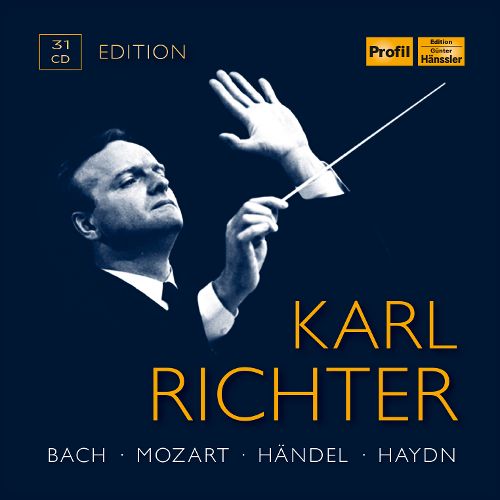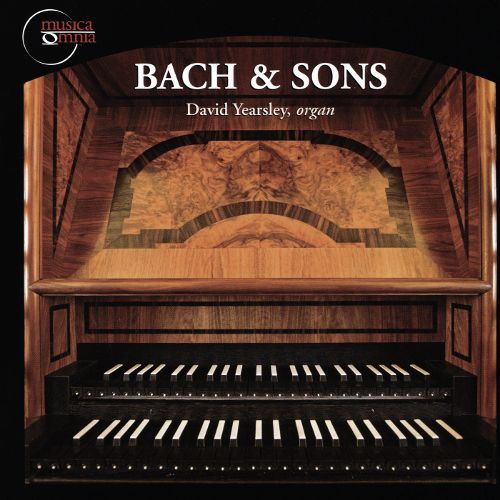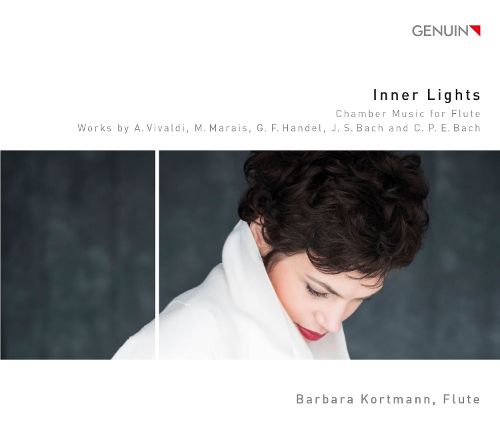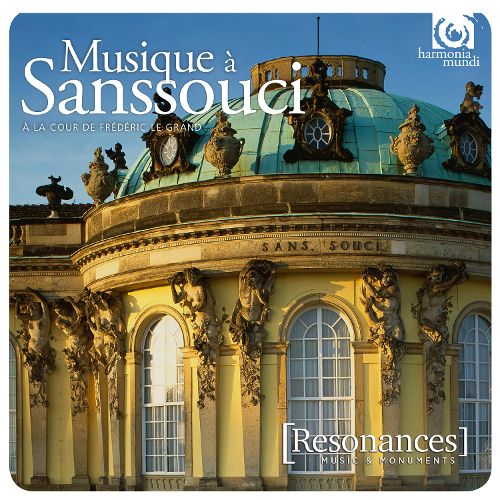Johann Sebastian Bach (요한 제바스티안 바흐)
The Musical Offering, BWV 1079
100
10,000
1,400
WORK INFO
작곡가: Johann Sebastian Bach (요한 제바스티안 바흐)작곡년도: May 1747 - Jul 1747출판년도: 1885평균연주: 48:33악장1Ricercare à 36:122Canon perpetuus super thema regimum1:293Canons diversi. Canon à 2 "Canon Cancrizans" (Crab Canon)1:414Canons diversi. Canon à 2 "Violini in unisono"1:075Canons diversi. Canon à 2 "Canon per motum contrarium"1:166Canons diversi. Canon à 2 "Canon per augmentationem, contrario motu"1:447Canons diversi. Canon à 2 "Canon circularis per tonos"2:328Fuga Canonica in Epidiapente2:179Ricercare à 67:2710Canon à 2 "Quaerando invenietis"1:1811Canon à 43:0112Sonata sopr'il Soggetto Reale: Largo5:3413Sonata sopr'il Soggetto Reale: Allegro5:5914Sonata sopr'il Soggetto Reale: Andante3:1215Sonata sopr'il Soggetto Reale: Allegro3:0516Canon Perpetuo [per justi intervali]2:06The Musical Offering (German title: Musikalisches Opfer or Das Musikalische Opfer), BWV 1079, is a collection of keyboard canons and fugues and other pieces of music by Johann Sebastian Bach, all based on a single musical theme given to him by Frederick the Great (Frederick II of Prussia), to whom they are dedicated. The Ricercar a 6, a six-voice fugue which is the highpoint of the entire work, was put forward by the musicologist Charles Rosen as the most significant piano composition in history (partly because it is one of the first). This ricercar is also occasionally called the Prussian Fugue, a name used by Bach himself.
The collection has its roots in a meeting between Bach and Frederick II on May 7, 1747. The meeting, taking place at the King's residence in Potsdam, came about because Bach's son Carl Philipp Emanuel was employed there as court musician. Frederick wanted to show the elder Bach a novelty, the fortepiano, which had been invented some years earlier. The King owned several of the experimental instruments being developed by Gottfried Silbermann. During his anticipated visit to Frederick's palace in Potsdam, Bach, who was well known for his skill at improvising, received from Frederick a long and complex musical theme on which to improvise a three-voice fugue. He did so, but Frederick then challenged him to improvise a six-voice fugue on the same theme. The public present thought this was just a malicious caprice by the King, intent upon humiliating philosophers and artists. Bach answered that he would need to work the score and send it to the King afterwards. He then returned to Leipzig to write out the Thema Regium ("theme of the king"):From WIKIPEDIA
RELEASED ALBUMS
-
Bach: Un ItinéraireFebruary 28, 2025
-
Bach: Musikalisches OpferJanuary 24, 2025
-
Bach to Notre-DameJanuary 10, 2025
-
The Experts: The Bach & Silbermann DynastiesOctober 25, 2024
-
A Tribute to BachSeptember 15, 2023
-
J.S. Bach: Musikalisches Opfer, BWV 1079 - Ricercar a 3December 2, 2022
-
J.S. Bach: Sonatas for Viola Da Gamba, BWV 1027-1029June 3, 2022
-
B-A-C-H: Anatomy of a MotifFebruary 4, 2022
-
The Imaginary Music Book of J.S. BachOctober 8, 2021
-
Grand TourSeptember 24, 2021
-
Bach: L'Extase MusicaleSeptember 24, 2021
-
Bach: KlavierwerkeMarch 19, 2021
-
J.S. Bach: Music for Recorder & HarpsichordJanuary 22, 2021
-
Bach's Musical OfferingsOctober 9, 2020
-
Johann Sebastian Bach: Musikalisches Opfer BWV 1079September 18, 2020
-
Bach, Byrd, Gibbons + Contemporary MusicJune 19, 2020
-
Johann Sebastian Bach: The Well-Tempered Consort IJanuary 24, 2020
-
J.S. Bach: Kunst der FugeSeptember 20, 2019
-
Bach: Fantasia & DuetsMay 17, 2019
-
Music for a King: Chamber Works from the Court of Frederick the GreatApril 26, 2019
-
Ricercare: Bach in LövstabrukJanuary 4, 2019
-
Tatiana Nikolayeva, Vol. 2: Bach Piano ConcertosOctober 19, 2018
-
Bach SanssouciSeptember 14, 2018
-
Johann Sebastian Bach: Musical Offering, BWV 1079July 20, 2018
-
BWV… or not!November 10, 2017
-
J.S. Bach: Musicalischer OpferNovember 3, 2017
-
Karl Richter Edition: Bach, Mozart, Händel, HaydnOctober 20, 2017
-
Bach & SonsMarch 17, 2017
-
Inner LightsJanuary 6, 2017
-
Musique à Sanssouci: À La Cour De Frédéric Le GrandDecember 2, 2016
ALBUM MUSIC
WORKS SHOUTS



